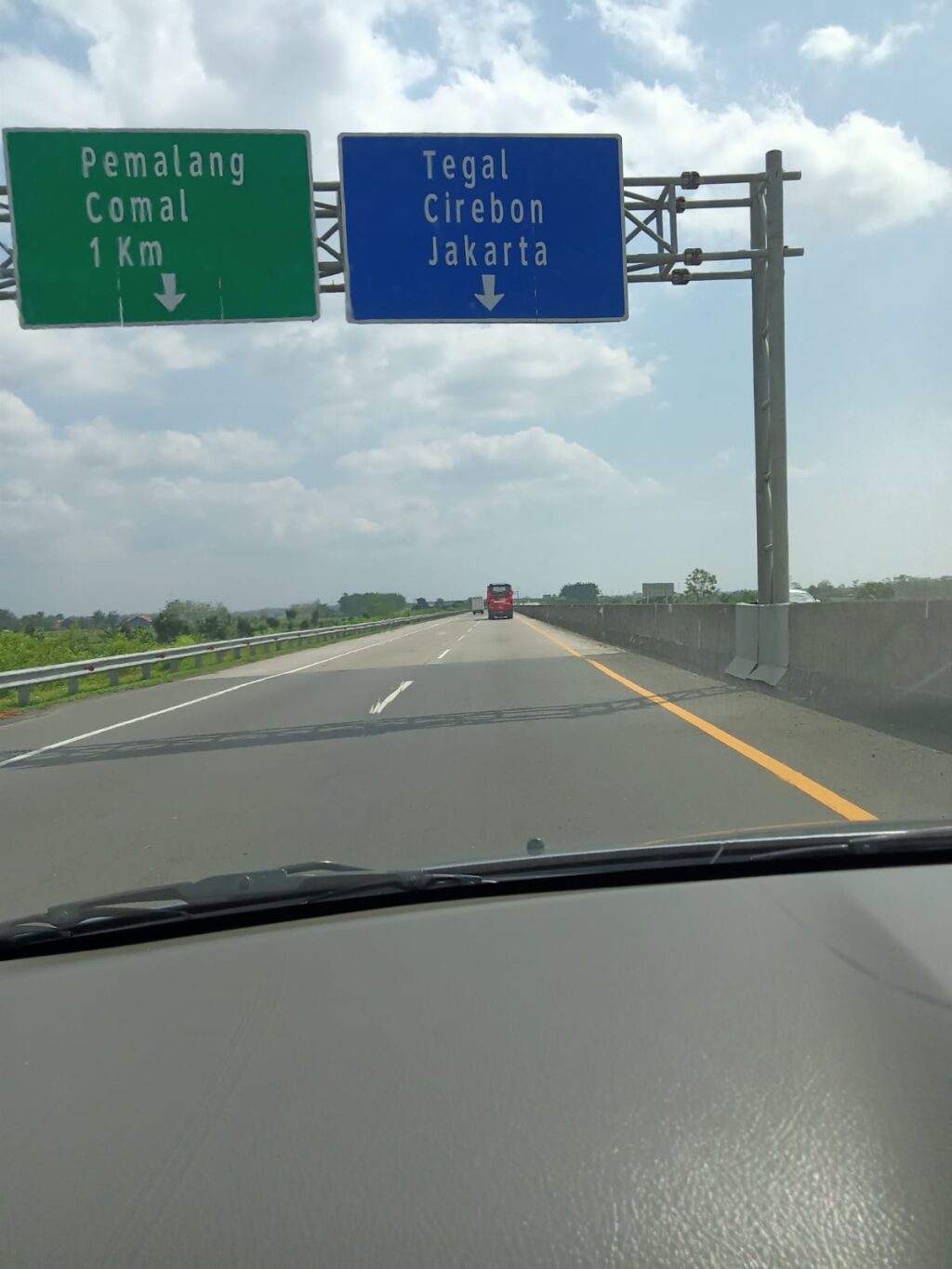
STRATEGIC ASSESSMENT. U.S. Secretary of the Treasury Janet Yellen and Indonesian Minister of Finance Sri Mulyani Indrawati signed the IDR 10.2 trillion ($698 million) Indonesia Infrastructure and Finance Compact – a five-year compact between the U.S. government’s Millennium Challenge Corporation (MCC) and the Government of Indonesia, with contributions of IDR 9.5 trillion ($649 million) from the United States and IDR 718 billion ($49 million) from the Government of Indonesia.

MCC Chief Executive Officer (CEO) Alice Albright joined the signing ceremony at the International Monetary Fund with representatives from the U.S. and Indonesian governments. “This partnership represents the United States’ and Indonesia’s shared belief in democracy and innovation-driven economic growth,” said Secretary Yellen.
“The compact will support Indonesia’s Just Energy Transition Partnership, and the development of climate-resilient infrastructure that meets the standards under the Partnership for Global Infrastructure and Investment (PGII) – jointly announced by our presidents at the G20 Leaders’ Summit.”
USAID, Amazon Web Services (AWS), and information technology service provider Elitery Academy launched the TALENTA (Acceleration of Indonesia’s Transformation into a Digital Economy) program, which aims to produce 60,000 work-ready graduates from 20 universities, as well as 100 digital startups.
USAID Indonesia Director Jeff Cohen said the United States is delighted to be working with AWS and Elitery Academy to strengthen Indonesia’s digital workforce. AWS Indonesia Worldwide Public Sector Country Manager Mohammad Ghozie Indra Dalel said that the company is pleased to work with USAID and its partners AWS and Elitery to support the program.
U.S. Congressional Delegation member Senator Jeff Merkley, during his visit to the Nusantara capital city, praised the plan to build a forest city in Indonesia’s new capital city. He expressed hope that he could return to Nusantara to see the results of the development in the future.
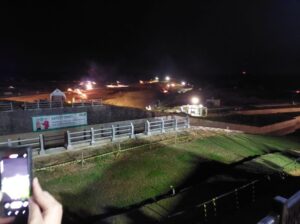
According to Merkley, the plan to keep about two-thirds of the area remaining forested is a big opportunity. Nusantara Capital City Authority (OIKN) Chair Bambang Susantono said that by seeing it firsthand, the delegates would believe and feel the atmosphere, and that the development process would continue.
Securing a limited free trade agreement (FTA) to reap the benefits of U.S. subsidies on electric vehicles (EVs) is expected to be a tough task for Indonesia as the country has leaned toward China in wide-reaching investments to develop its critical minerals. The United States has issued new guidance for a $7,500 EV consumer tax credit under the Inflation Reduction Act (IRA), but with a couple of strings attached.
Getting half of the credit requires a threshold percentage of the battery’s critical minerals to be extracted or processed in a country that has an FTA with the United States. The other half requires a threshold percentage of battery components to be manufactured or assembled in North America. Indonesian businesses have responded to the policy with concern, as EV batteries produced using critical Indonesian minerals will likely be ineligible for the tax credits as the country does not have an FTA with the United States.
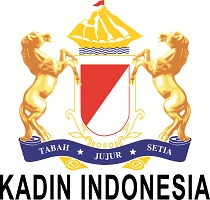
Arya Rizqi Darsono, head of the Indonesian Chamber of Commerce and Industry’s (Kadin) coal and mineral committee, told The Jakarta Post that domestically produced EVs and batteries would see difficulties surviving in the U.S. market without the tax credit. “On the one hand, our products would be less competitive, while the U.S. market would be left with not so many choices for battery and EV manufacturers,” he said. “We hope the Indonesian government can immediately resolve this problem with the U.S. government.”
German Chancellor Olaf Scholz said that he will press for a trade agreement between the European Union and Indonesia as part of his country’s efforts to reduce its reliance on China for crucial raw materials. Speaking at the opening of the annual Hannover trade fair, Scholz told Indonesian President Joko Widodo that a trade deal between Southeast Asia’s most populous nation and the 27-nation bloc would create an economic area with 700 million people.
“I am working to finally get this agreement across the finish line,” Scholz said of the negotiations between Jakarta and Brussels, which have been ongoing since 2016.
Volkswagen will build an electric vehicle (EV) battery ecosystem in Indonesia and will partner with miner Vale, Ford and China’s battery minerals producer Zhejiang Huayou Cobalt, the Southeast Asian country’s investment minister said. Automakers are courting Indonesia for its raw materials used in producing EV batteries, which account for about 40% of a vehicle’s sticker price, aiming to cut costs and close the gap on EV market leader Tesla.
Minister Bahlil Lahadalia said that Volkswagen, Europe’s biggest automaker, will work with Vale, Ford, Huayou, French miner Eramet and several Indonesian firms such as Merdeka Gold Copper, the parent company of Merdeka Battery, and energy firm Kalla Group.
In the indigenous community where Rukka Sombolinggi grew up, on the Indonesian island of Sulawesi, strict rules governed how a slaughtered buffalo’s meat was divided. The elderly, the sick, and other vulnerable people received choice pieces — the head, the liver, and the small intestine, considered a particular delicacy once roasted.
Others, better off, waited their turn for a share, risking condemnation from the community if they took too many of the best bits for themselves. “People in powerful situations need to be controlled. If we don’t, the powerful will eat everything,” said Sombolinggi, now the general secretary of Aman, an alliance that represents 15 million indigenous people in Indonesia.
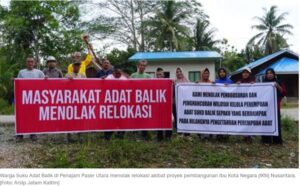
That message of managing the powerful — and keeping the communal good at the forefront of decisions — is one the world needs to learn from indigenous people as it struggles to tackle big problems from climate change to pandemics, she said. “We believe in the collective,” Sombolinggi said in an interview this week at the Skoll World Forum, an expert gathering focused on solving global problems.
Coordinating Minister for Maritime Affairs and Investment Luhut Pandjaitan met with the U.S. Secretary of Commerce Gina Raimondo and the U.S. Trade Representative Ambassador Katherine Tai in separate meetings according to a release from the U.S. Embassy Jakarta.
Secretary Raimondo expressed gratitude to Minister Luhut for the Indonesian government’s strong support for the Indo-Pacific Economic Framework for Prosperity (IPEF), including hosting the previous round of negotiations in Bali. The two also discussed their shared goals and objectives leading up to the next round of IPEF negotiations, which will take place in Singapore next month.
They also discussed opportunities to increase bilateral economic cooperation. Meanwhile, in his meeting with Ambassador Tai, Minister Luhut raised the topic of critical minerals. Ambassador Tai reiterated that any future critical minerals talks would involve close consultation with Congress and domestic stakeholders. They also discussed several bilateral issues, one of which was related to horticultural import licensing.
Securing a limited free trade agreement (FTA) to reap the benefits of United States subsidies on electric vehicles (EVs) is expected to be a tough task for Indonesia as the country has leaned toward China in wide-reaching investments to develop its critical minerals.
The US has issued new guidance for a US$7,500 EV consumer tax credit under the Inflation Reduction Act (IRA), but with a couple of strings attached. Getting half of the credit requires a threshold percentage of the battery’s critical minerals to be extracted or processed in a country that has an FTA with the US. The other half requires a threshold percentage of battery components to be manufactured or assembled in North America.
Indonesian businesses have responded to the policy with concern, as EV batteries produced using critical Indonesian minerals will likely be ineligible for the tax credits as the country does not have an FTA with the US.
Indonesia will follow through on plans to ban exports of bauxite, cobalt and tin in June as part of the country’s strategy to draw more economic benefits from its rich natural resources, according to Arifin Tasrif, the country’s minister of energy and mineral resources. Indonesia’s nickel ore bans in 2014 and 2020 have attracted foreign manufacturers of stainless steel, batteries and cars to build a supply chain from nickel mining and smelting to making batteries and EVs.
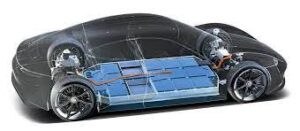
At the recent G-7 Ministers’ Meeting on Climate, Energy and Environment in Sapporo, Japan, Indonesia’s increasing role in the energy transition was apparent. The G-7 nations, a group of advanced economies, agreed to boost cooperation on critical minerals supply chains and uphold strong environmental, social and governance standards for the nickel, lithium, copper and other metals needed for electrification and battery technologies. Indonesia was invited to the ministerial meeting as chair of the Association of Southeast Asian Nations (ASEAN), a 10-country economic partnership.
Indonesia is on the lookout as Russia will export coal on a large scale to China, making Indonesia’s position potentially threatened considering that China has always been Indonesia’s top coal importer. Siberian Coal Energy Company SUEK, Russia’s largest exporter of the fossil fuel, is set to significantly increase sales to China in 2023, the company’s CEO Maxim Basov said to reporters.
The Indonesia Infrastructure and Finance Compact, according to a U.S. Embassy official speaking at the Limited Media Roundtable in Jakarta, comprises three major initiatives.
The first is the $350 million Advancing Transport and Logistics Accessibility Services (ATLAS) project. In this case, the Millennium Challenge Corporation (MCC) will work in five priority provinces: South Sumatra, North Sulawesi, Riau, Riau Islands, and Bali.
The second project is the Financial Markets Development (FMD) project, which will offer both technical help and financial grants. The final project is the Access to Finance Project for Women-Owned Micro, Small, and Medium Enterprises (MSMEs), which seeks to strengthen formal lending services for MSMEs, particularly those owned by women.





